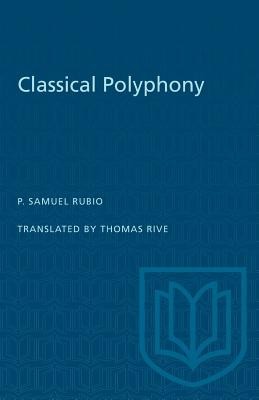
- We will send in 10–14 business days.
- Author: P Samuel Rubio
- Publisher: University of Toronto Press
- ISBN-10: 1487580592
- ISBN-13: 9781487580599
- Format: 14 x 21.6 x 1.2 cm, minkšti viršeliai
- Language: English
- SAVE -10% with code: EXTRA
Reviews
Description
The name of P. Samuel Rubio is known to students of Renaissance polyphony for his scholarly articles in learned periodicals, his editorship of different collections of sacred polyphony, and through his edition of the motets of Victory -- Tomás Luis de Victoria, Motetes, Vols. 1-4 (union Musical Española, Madrid -- 1964). Text books -- in English -- on the subject of sixteenth-century counterpoint are numerous and excellent; but none discusses the classical polyphonic style with quite the understanding affection that Father Rubio brings to this task. His treatment of notation, time-signatures, the modes, chromatic alteration, is supported by opposite quotation from sixteenth-century authorities and his discussion of form and texture are based on a knowledge derived from wide experience in performance as well as close analytical study.
EXTRA 10 % discount with code: EXTRA
The promotion ends in 22d.19:38:28
The discount code is valid when purchasing from 10 €. Discounts do not stack.
- Author: P Samuel Rubio
- Publisher: University of Toronto Press
- ISBN-10: 1487580592
- ISBN-13: 9781487580599
- Format: 14 x 21.6 x 1.2 cm, minkšti viršeliai
- Language: English English
The name of P. Samuel Rubio is known to students of Renaissance polyphony for his scholarly articles in learned periodicals, his editorship of different collections of sacred polyphony, and through his edition of the motets of Victory -- Tomás Luis de Victoria, Motetes, Vols. 1-4 (union Musical Española, Madrid -- 1964). Text books -- in English -- on the subject of sixteenth-century counterpoint are numerous and excellent; but none discusses the classical polyphonic style with quite the understanding affection that Father Rubio brings to this task. His treatment of notation, time-signatures, the modes, chromatic alteration, is supported by opposite quotation from sixteenth-century authorities and his discussion of form and texture are based on a knowledge derived from wide experience in performance as well as close analytical study.


Reviews